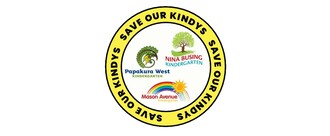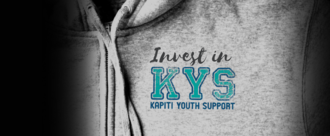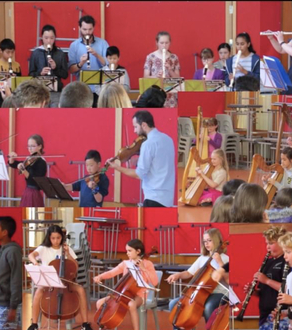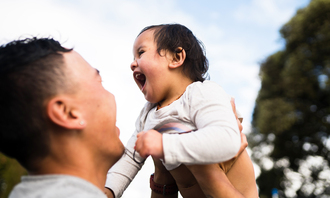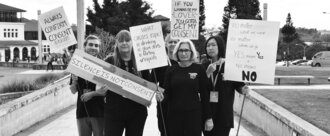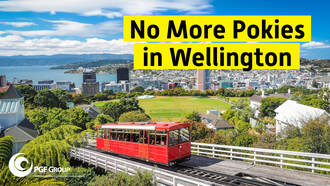-
NZ Sign Language Accessibility to Commemoration, Anniversaries & FestivalsDeaf people need access to NZSL Interpreters to communicate with friends, whānau, stall holders, at public events. Formal NZSL interpreting at these events means Deaf people can follow the proceedings, speeches given by dignitaries, and participate too. Not having access excludes Deaf people from participating in commemoration events fully. This could be anything from wanting to know more about the products being sold by stall holders to having a catch up conversation with friends & whanau one meets at these events, engaging in discussions on matters pertaining to the event itself with other attendees.503 of 600 SignaturesCreated by Deaf Action

-
Give the Waikeria Uprising protesters food and waterThe way the Department of Corrections is currently handling the Waikeria Uprising breaches the human rights of these protesters. As human beings, the protesters deserve food and water. Currently, Corrections is denying them this and won't allow anyone in to deliver these basic needs. It would be an important sign of good faith to the protesters if they are granted this basic human right. Is New Zealand a country that starves people who are protesting for basic human rights?8,782 of 9,000 SignaturesCreated by People Against Prisons Aotearoa

-
Save Our Kindys – Keep The Kindergarten Experience Alive!This petition is to demonstrate that the operational changes to be made to Mason Avenue Kindergarten, Nina Busing Kindergarten and Papakura West Kindergarten are not supported by families and the community. The Counties Manukau Kindergarten Association (CMKA) have been rolling out operational changes to all the kindergartens, which has resulted in the loss of the traditional kindy model. If this is not stopped, the last three kindergartens yet to change will be open from 8am – 3:30pm/5pm and will operate throughout the school holidays. Key points: • The quality of teaching and learning will be negatively affected by these operational changes. • Introducing multiple sessions and flexible drop off and pick up times will change the structure and create an unsettling environment for children. • Parents send their children to kindergarten to receive high quality early childhood education under a play based model that reflects the school day. • Longer hours for children - we believe the six hour session time of 8:30am – 2:30pm is long enough for 3-5 year olds. Current research supports this. • The kindergarten will be required to fill the spots for the extra hours so that funding is maximised. • Children need the holidays to rest and recharge, as do the teachers. • Kindergartens have long attracted high quality teachers and risk losing their staff due to unfavourable working conditions. • The choice parents have in regards to early childhood education is removed. A traditional kindergarten is different from a privatised daycare model. There are numerous other childcare centres in Franklin that have longer opening hours and availability during term breaks. • There will no longer be term breaks and fee paying families must continue to pay, regardless of whether their child attends or not. We strongly believe these changes are not in the best interests of our children and community. We propose that the CMKA responds to the community and Mason Avenue Kindergarten, Nina Busing Kindergarten and Papakura West Kindergarten continue to operate as a traditional kindergarten by keeping the current hours of 8:30am – 2:30pm and not operating during term breaks. These three centres are considered highly functioning kindergartens with large waitlists, active parent communities and strong fundraising capabilities - why fix something that isn’t broken? We will deliver the petition directly to CMKA CEO Calmar Ulberg and The Board of Management.727 of 800 SignaturesCreated by Jody Christie
-
Immediate investment in Kāpiti Youth SupportYouth One Stop Shops are designed to meet the specific needs of children and young people. It is time KYS (as a Youth One Stop Shop) was funded through an integrated and sustainable funding model that allows them to deliver the health, mental health and social services our young citizens need. The current siloed health, mental health and social service funding models mean KYS are is constantly chasing contracts and funding, which is unsustainable. Funding must ensure that services continue to be free. Cost barriers lead to the most vulnerable children and young people missing out on services. Free services remove barriers and ensure more equitable access for young people. Youth One Stop Shops, including KYS, are an expert voice on youth health and wellbeing. KYS delivers a range of health and social services under one roof. This co-location means they are able to meet the full range of needs a young person has, in a holistic and integrated way, as recommended in a recent review of the health system. However, their current ad hoc and short-term funding contracts (along with limited private donations) means they have unstable income streams. This makes it impossible to take a long-term approach to plan or to coordinate the resources necessary to support our young people in Kāpiti or expand their reach.5,123 of 6,000 SignaturesCreated by Sophie Handford
-
Protect Porirua East!The proposed rules in the District Plan would enable a huge 25 year housing development programme in eastern Porirua. The project will mean over 1000 state homes knocked down, families displaced and private property acquired under the Public Works Act to free up land for property developers. The plan will see an additional 2000 houses for private sale crammed into the geographically small suburbs of Waitangirua and Cannons Creek. The main theme of the proposed district plan is to allow greater housing density, which is needed, but currently it does so in a way that discriminates on social class. Under the proposed plan the generally middle class suburbs become the low density General Residential Zone and the generally working - class suburbs become the medium density residential zone. This means reduced amenities for the east only! The plan in it's current state doesn't go far enough to tackle climate change. Porirua has an empty city centre that has space for apartment style housing that is walking distance to public transport and amenities. This space should be utilised before digging into our green belt. With over 1000 houses set to be demolished in the East we need to ensure that waste is managed and minimised, and the new builds bring an opportunity to used renewable energy sources. We need a Porirua that all people can get around and the community can live in. Our current housing stock doesn't meet the needs of our disabled and ageing whānau. Building new homes and spaces gives us an opportunity to make sure that everyone is adequately housed, can age in place and is able to participate in community. If you want to make your own submission you can do that here: https://poriruacity.govt.nz/your-council/city-planning-and-reporting/district-plan/proposed-district-plan/571 of 600 SignaturesCreated by Housing Action

-
Save the Wellington Music CentreSaturday morning music has been a New Zealand institution since 1957. It provides an opportunity for kids from all sorts of backgrounds, who otherwise wouldn’t be able to afford lessons, a chance to learn an instrument and to develop into life long musicians. Wellington Music Centre is funded through the Ministry of Education’s out of hours programme, providing lessons and affordable instrument hire to any child up to high school, in Wellington. Closing the Centre will prevent kids from discovering their musical passion and make the Wellington music scene less diverse and inclusive. Island Bay School must make efforts to find another solution to any problem it has hosting the Centre. One that continues the long lasting positive impact on kids in Wellington, the cultural capital. We ask the School to keep it open and work with the Education Ministry, the community and other experts on ways to manage their administration problems. The solution needs to allow the children of Wellington access to affordable lessons.578 of 600 SignaturesCreated by Louis Holland

-
Help Dame Sue Bagshaw build her Youth HubWe are all concerned about our young people, and regular health services do not always provide the spaces they need. By signing this petition we show our support for Youth Hub Trust chairwoman Dame Sue Bagshaw who has worked her entire life toward the realization of a youth hub in Christchurch. She has helped thousands of young people find a way through difficult periods in their lives. Now the dream is about to come true were it not for some people who do not understand the significance of such a facility and are trying to stop the project. This new facility will provide day support as well as some temporary housing. For years we have understood the mental health issues in Christchurch due to a succession of disasters, the site was gifted to the trust and in my eyes the building will not particularly impact on the surroundings. Every town should have such an opportunity. The facility will include 22 one-bedroom units, one four-bedroom and four three-bedroom units as well as accommodation for two supervisors and a site manager. To be eligible for housing the young people must be in education/training or looking for employment. There will be a healthcare centre, office spaces for 13 different youth-related organisations, private and communal outdoor living spaces, a basketball court, cafe, events centre seating up to 200 people, a rooftop greenhouse and indoor recreation and art space.No alcohol or drugs will be allowed and the Christchurch Methodist Mission will manage the housing. Please sign this petition so the trust can present this to the Christchurch council as support for their plans. https://www.stuff.co.nz/the-press/news/122915886/central-christchurch-residents-fighting-muchneeded-youth-hub/868 of 1,000 SignaturesCreated by Gerrie Ligtenberg
-
Open Letter: Five To ThriveToo many of our children in Aotearoa are missing out on the basics they need to thrive. With political will, we can change this to ensure all of our children have a bright future. We are asking our friends, whānau, and colleagues - Kiwis that care about our children, to sign on to this open letter to ask that every child in Aotearoa gets the five basics they need to do well now, and into the future. To find out more, check out Five To Thrive https://www.fivetothrive.nz/ To keep you updated with the campaign your signature details will be shared with the four organisations leading this campaign; Barnardos, Save the Children, Te Kāhui Mana Ririki Trust, and Whānau Āwhina Plunket.610 of 800 SignaturesCreated by Five To Thrive

-
Consent Education should be compulsory for First-Year Tertiary StudentsIn a world free from sexual violence, students would be able to learn and achieve, without fear, harm or violence. Students would be able to walk through campus, attend lectures, engage in tutorials, knowing that they are valued, respected, and treated equally. Starting tertiary study is an important time in a young person's life, and sets them up for their entire life course 'pipeline'. When a student faces barriers or trauma during their study, it often has lifelong ripple effects and consequences. Recent research shows that 1 in 3 students will experience sexual harm during study [1], and this mirrors Thursdays in Black's own findings, which highlighted that over 50% of participants had experienced some form of sexual harm during study [2]. Research on wider populations shows that in Aotearoa, 1 in 3 women, 1 in 6 men, and 1 in 2 transgender people will experience sexual harm. Research also shows that women, Māori, Queer/Takatāpui, and disabled students are at significantly higher risk of experiencing harm in comparison to other identities, and that 90% of sexually harmful situations happen between people that know each other, for example friends, relationships, colleagues, or family. At Thursdays in Black, our vision is to improve these circumstances, by mandating sexual consent education for first years students. This education will empower young people by giving them the skills to navigate and create their own healthy sexual relationships, help prevent harmful behaviours, and contribute to the ongoing culture change of tertiary institutions. By teaching these skills to students aged 17-20, we will be setting them up with a kete of tools that will benefit them throughout their life, and help make our communities safer. Yet at present, there is no legal requirement for tertiary institutions to offer compulsory courses to teach students about sexual consent. New Zealand institutions currently have a fragmented approach to consent education, with different institutions offering different levels of engagement, different approaches, and some with out any programmes at all. At Thursdays in Black, we believe that Aotearoa can do better, and see that implementing such an education policy as not only urgent, but long overdue. We request that the Minister pass legislation requiring tertiary institutions in Aotearoa to provide sexual consent education to all first-year tertiary students. Such education should be a research-based program, created with and facilitated by subject matter experts and the sexual violence sector, it should engage student leaders, operate on a bi-cultural model that upholds Te Tiriti o Waitangi, and reflect an intersectional approach that respects the disproportionate impact sexual violence has on specific groups. Tertiary institutions, for the most part, remain out-dated and traditional in their thinking -- often reinforcing a rape culture of power imbalances, misogyny, and toxicity. This does not make a safe environment for our tertiary students. Help make education safe. Sign the petition today to call on the Minister to implement compulsory consent courses for first-year students. 1. Unpublished Phd Thesis by Kayla Stewart, for a preliminary discussion of her findings, see https://www.stuff.co.nz/national/113090659/a-third-of-women-university-students-report-being-sexually-assaulted-what-do-we-owe-them 2. In 2017, Thursdays in Black Aotearoa conducted a report titled ‘In Our Own Words’, which details the extent to which tertiary students experienced sexual violence prior to, and during, their studies You can find it here: https://library.nzfvc.org.nz/cgi-bin/koha/opac-detail.pl?biblionumber=5557922 of 1,000 SignaturesCreated by Jahla Lawrence
-
Supporting paid leave for women after abortionsThe United Nations 2030 Agenda for Sustainable Development has a focus under Goal 5 on safe abortion as part of protecting “human rights and promoting gender equality and the empowerment of women and girls”. Target 5.6 seeks to ensure “universal access to sexual and reproductive health and reproductive rights as agreed in accordance with the Programme of Action of the International Conference on Population and Development and the Beijing Platform for Action and the outcome documents of their review conferences”. We believe that the Holiday Amendment Bill act could be changed to better suit the goals of the UN 2030 Agenda for Sustainable Development and to better support women in Aotearoa. We hope you consider our suggestion as young people and women going into the workforce. As a society, we believe we need to do more to ensure women have equal rights and have equitable working conditions. Thank you for helping us in our fight to remove the word ‘unplanned’ from Ginny Anderson’s Holiday Amendment Bill. Ngā mihi, Lorna Hallett Renee Hamilton Kate Chu Athena Kapralos Ella Murdoch Evie Harrington Bella Redshaw Bintou Fiti-Jaiteh Natasha Taylor Valora Leilua-Tiatia Tia-Rhiena Martin-Upton Nicole Askari Ruby McGovern Sophie Irving187 of 200 SignaturesCreated by Lorna Hallett
-
Support families in need. Extend the Winter Energy PaymentAs New Zealanders, we believe in justice and compassion. We want everyone to have the opportunity to thrive. But, right now, hundreds of thousands of people in our country are living in poverty. Despite our differences, we share a responsibility to make sure everyone has a decent standard of living and the same chances in life. Poverty in New Zealand affects people of all ages and situations – children and their parents, young adults, people in and out of work and people with disabilities. The stress that comes with poverty can erode people’s mental and physical health. Showing compassion as a society means making sure no-one has to endure the harms of poverty. On October 1, 2020, the Winter Energy Payment that is provided to people on government income support, to assist with heating a home, is due to expire. This will cut the already low incomes for people locked in poverty by $63 a week for couples and $41 a week for an individual. But as research has shown, $40 - $60 less per week means not being able to go to the dentist or doctor, not being able to afford emergency bills and not being able to pay for kids to participate in extracurricular activities like sports, art or volunteering. At a time where food banks are reporting record demand and the number of people needing government income support had its biggest jump in 24 years in April, the government needs to show some compassion. By permanently extending the Winter Energy Payment, the government can help make it possible for everyone to do well.861 of 1,000 SignaturesCreated by Nick Stoneman
-
No more pokies in Wellington!Wellington City Council is seeking feedback on its proposed gambling venues policy for electronic gaming machines, more commonly known as ‘pokies’. The Council has powers to determine which TABs, pubs and clubs can host pokie machines. The current policy limits the number of machines in certain areas, but we would like the policy to include a ‘sinking lid’. That means no new pokies venues would be able to open in the Wellington area. We think a sinking lid is the best policy available to reduce the number of pokie machines and reduce gambling harm. Currently Wellington City has 633 pokie machines across 40 venues. In 2019, people in Wellington lost over a staggering $40 million on these machines. Some people support pokies because the gambling losses are used to fund community groups. But only 40% of the losses are returned to the community and not always into the community it comes from. Pokies are highly addictive and are the most harmful form of gambling. It is estimated that 30% of the money lost on pokies comes from people experiencing harm. Pokies outside casinos make up almost 50% of the people who seek help about their gambling. Pokie machines in Wellington are clustered in the most deprived neighbourhoods in the city where people can least afford to lose significant amounts of money. Council’s consultation process is public and your comments will be available for public inspection. Submissions are open until 1 October 2020. Your submission won’t be returned to you, so if you require a copy, please make one before submitting. Your name, address, phone number, and email address are required for this official submission and will be for Council use only. If you require a special private hearing where your identity will be protected and you have experienced gambling harm, please contact PGF Group on 0800 664 262.325 of 400 SignaturesCreated by Paula Snowden



